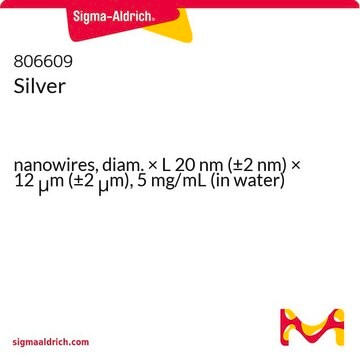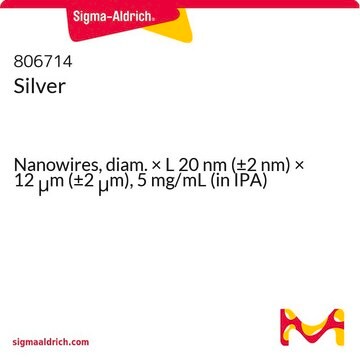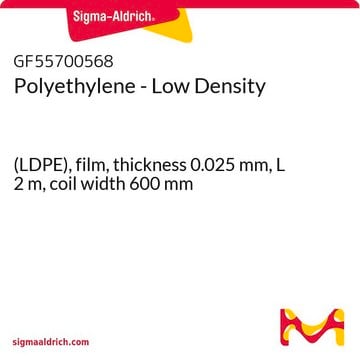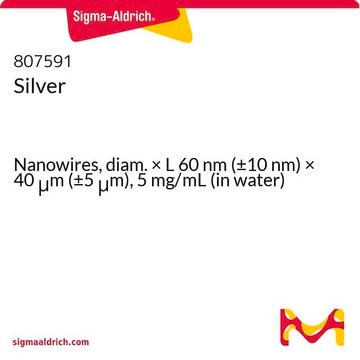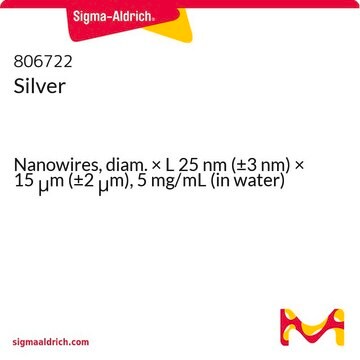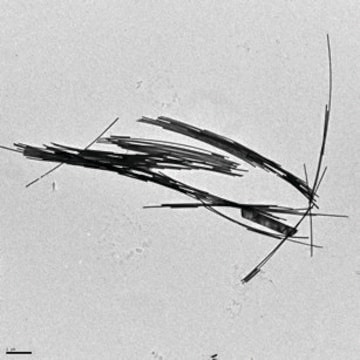739448
Silver nanowires
diam. × L 100 nm × 6 μm, 0.5% (isopropyl alcohol suspension)
Synonym(s):
Silver nanofibers, Silver nanowhiskers, Silver nanowire
About This Item
Recommended Products
form
liquid (suspension)
nanowires
concentration
0.5% (isopropyl alcohol suspension)
diam. × L
100 nm × 6 μm
impurities
<5 wt. % non-volatile organics (TGA)
SMILES string
[Ag]
InChI
1S/Ag
InChI key
BQCADISMDOOEFD-UHFFFAOYSA-N
Looking for similar products? Visit Product Comparison Guide
Related Categories
Application
Signal Word
Danger
Hazard Statements
Precautionary Statements
Hazard Classifications
Aquatic Acute 1 - Aquatic Chronic 1 - Eye Irrit. 2 - Flam. Liq. 2 - STOT SE 3
Target Organs
Central nervous system
Storage Class Code
3 - Flammable liquids
WGK
WGK 3
Flash Point(F)
55.0 °F - closed cup
Flash Point(C)
12.8 °C - closed cup
Certificates of Analysis (COA)
Search for Certificates of Analysis (COA) by entering the products Lot/Batch Number. Lot and Batch Numbers can be found on a product’s label following the words ‘Lot’ or ‘Batch’.
Already Own This Product?
Find documentation for the products that you have recently purchased in the Document Library.
Customers Also Viewed
Articles
The ability to pattern conductive electrodes is technologically relevant for several applications, including photovolatics, displays, sensors, and biomedical devices.
Silver nanomaterials have unique physical, chemical, and optical properties that are currently being leveraged for a wide variety of biological applications.
Among various ceramics, one-dimensional (1-D) piezoelectric ceramics have attracted significant scientific attention for use in energy harvesting.
TiO2 exhibits wide band gap semiconductor and memristor properties electronically, with high opacity and UV absorbance optically.
Our team of scientists has experience in all areas of research including Life Science, Material Science, Chemical Synthesis, Chromatography, Analytical and many others.
Contact Technical Service
